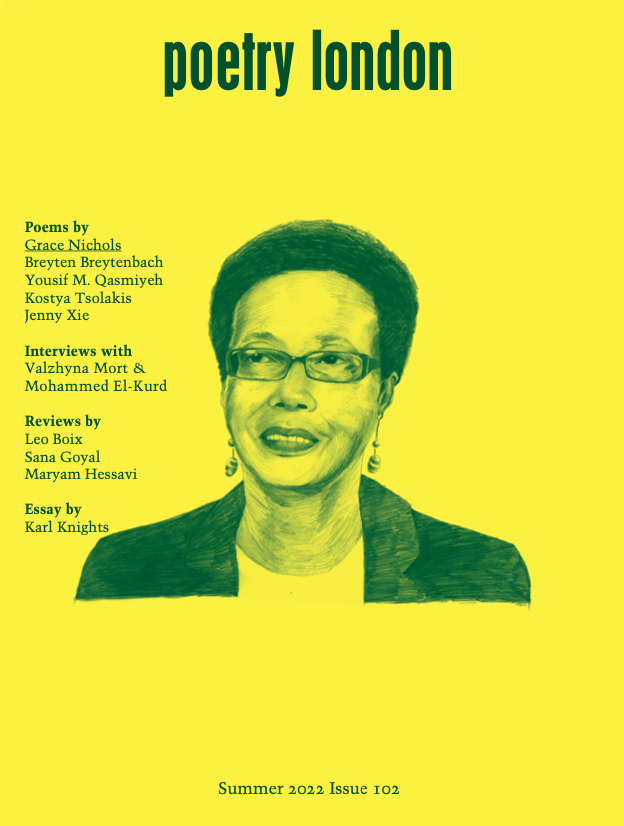‘The Camp is a Bait for Time’
Yousif M Qasmiyeh
With the shovel, my father reclaims the echo. Blow after blow until the wheat wakes … The camp preserves its metaphors in the same way it shields its navel from the seen. Navel: a scar to itself. There, in the time that remains, camps raise their bodies as they raise their absence. If it alludes to anything, it alludes to the inheritance of water. Like her mother, my mother scythes dryness in her dreams. When my grandmother left her village, she died for her mother. My mother’s only question: Is dying, in the camp, history? To see the camp is to see its metonymies. Only once his olive tree died, did my grandfather make himself a walking stick. The proper noun, that is, what names, names nothing except the name. The Camp is a Bait for Time. Who testifies for who in the camp? To testify is to occupy time verbally. A custodian to itself it is: when survival is pondered by those in the camp, it is necessarily pondered in the future. The camp: a covenant between Man and time. When time is killed, only time can testify to its killing. Where is the mouth apropos the testimony? Can it be that mourning is the camp? The Camp is a Bait for Time. Between consciousness and its face, and with a stick as erect as his old back, he would say: Leave me to it. Leave me to its time. I write the camp as it is suspended in the written. In the actual written it is not. Nor is it in the absolute literality that suspiciously grasps the written. I say: Writing, like grasping, germinates the absent. What I write, I write for the disappearing hand, for the senility above, for what was a season, or a lapse, for its looming return to life in its form, deformed. I write to testify to my hand, to the limb in me, above all else. The suspected fears of the absent. For those who live at the pace of time, within the means of a dialect. A dialect that will come late to their dry throats because of a looming air raid or the imminent death of a passer-by. The thoughts that may wait to be picked off their well-bathed, dry bodies. This is living, living as life in the future, as suspected time. The Camp is a Bait for Time. I am not sure if there is one Baddawi. Nor am I sure if there is life. The camp is also guilty of the name. For it is a secret at birth: it is a camp. In the camp, a tense for the inactive in the air is benevolently called the future. Is it complicity between time and its offspring or is it the camp left to its own time? In traces, the subject fights with the subject. For a trace to endure as a trace, a dissolution of all things must ensue. Could writing be a trace? What follows mourning is mourning to the extent that neither the mourned nor the mourner know who is who. The gravedigger digs to bury and digs to see. Seeing is a cradle to the unseen. To dig is to justify digging with or without a reason. He always digs from the edges. He says: Dig not the inside! The edges eat into the inside until no inside remains. When dug, a hole is no longer a hole. Sublimated, revered and stuffed with its own innards, it becomes a shrine. In death, masks spit out their faces. Rocked by the oncoming feet they die until another time. Cemeteries in the camp are a discreet acknowledgment of that which is to come, in the sense that he who dies is he who survives time. The Camp is a Bait for Time. In the first person I see the camp. [The camp to my eyes. My eyes to the camp.] A camp it will be, the indefinite in the definite, a covenant for the place, for time promised as anniversaries. At every anniversary, my father remembers his face and forgets my mother’s. What my father remembers can and cannot be his face. To this day, he reminds me that I fell off his back. In his presence, I await myself to say what must be said. Neither he nor I remember whose language it is we speak. Dying substantiates dying. Straying while dying always grants the gravedigger more time to widen his imagination. Blame not a hand not knowing its hand. In the camp, people die out of their time. Claiming the opposite, pronounce the camp a place. This is not to say that the camp is other or unique as other: what is said is wholly said for the ruins before and after the place. In principle, the unique lies outside life. Those who cannot see their limbs have not yet been born. In my language, only the static is granted the right of birth and a father. Even though waiting is premised on seeing, their eyes never meet. We wait with no eyes. Can the blurriness in a child’s eye be the sacred? The sacred is nothing but absence. The forbiddance of narration, the forbiddance of quenching one’s thirst. I remember with all my might. I remember, hands anticipating my fall. I remember, drenched in guilt, marching back to the disaster, to the details of the dead, with strict chronologies and smells. I remember so I am alone, digging. Digging in the camp with my father’s shovel. I remember my mother ripping out her hair in anticipation of the future. I remember my hand stealing my mother from my sisters in broad daylight. The Camp is a Bait for Time.


